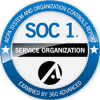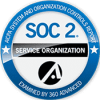Page Content
What Is An Electronic Health Record (EHR)?
Medical records are the cornerstone of a quality medical practice. The medical doctrines of observation and documentation have been established principles of sound clinical practice. Throughout medical history, paper records were the norm, and standards were limited. Fast forward to the late 1960’s and early 70’s when several electronic health records (EHRs) were developed. Other advances in health technology since that time include the use of computerized order entry, electronic prescribing platforms, and disease or health registries. Meaningful use standards have fostered a patient centered approach to EHRs. Yet, a central challenge to the EHR has been its ability to track health information that is documented outside of the clinical system that it supports, and their limitations for integrated care management.
Electronic health records usually contain :
- Medical history
- Medications
- Immunization records
- List of allergies
- Diagnoses
- Past and current treatment plans
- Test results
Although they are critical for clinical practice, electronic health records have shown limited capacity to support integrated health care for individuals with behavioral health conditions and social care needs. Challenges exist with the coordination of care from multiple providers (primary, specialty, behavioral health, and community) across different settings and over time; supporting integrated teams developing and working from shared care plans; and adequate documentation from providers of multiple clinical disciplines. These challenges have made it necessary for provider systems to adopt workarounds to utilize their EHRs to support integrated care management. Some of these workarounds included duplicate data entry and double documentation; transporting documents and scanning and merging information; reliance on patients and their clinicians for the recall of information; and the use of additional tracking systems. As health care moves to value-based care, greater accountability among providers and reimbursement based on health outcomes are generating a need for new technology solutions.
What Is Care Management Software?
A comprehensive approach to integrated care management requires sophisticated systems that are capable of a core set of functionalities. These health management IT system requirements go well beyond the capabilities of EHRs, and include:
Enrollment – enrollment systems have the capacity to track assigned populations that may vary month to month. In addition, they have the capacity to track designated members that may be in active care, or not presently affiliated with any care system.
Network and Provider Management – in order to provide care to designated populations, it is necessary to establish a provider network, including community service providers. This includes the ability to monitor and track credentialing requirements and assign provider profiles and reimbursement schedules.
Referral – effective care management requires the capacity to monitor and track referrals and authorizations for designated services. This may include both services within a provider system or outside of a designated network. Additionally, it may include referrals across multiple levels of care, facilities, and providers.
Care Coordination– a cornerstone of effective care management is the development of care plans, reviewing and tracking progress, and promoting evidenced based care options. It also involves the coordination of care between physical, behavioral, social health providers.
Utilization Review – medical necessity criteria are the guidelines which track, monitor, and determine the appropriate services and levels of care provided within covered benefits. In collaboration with care managers, utilization review standards coordinate care between providers and across levels of care.
Financial Reporting and Risk Management – the ability to accept financial risk for designated populations requires the ability to monitor expenditures for care and track health outcomes. Many risk-based contractual arrangements require complex financial tracking and adjudication of services and reporting services provided and outcomes. Predictive Modeling capabilities support the capacity to identify candidates that are likely to have high care expenses and coordinate their service needs with care management resources.
Quality Monitoring and Reporting – quality standards exist across the entire spectrum of both providers and payers of healthcare services. At the provider level, these may be accreditation standards like the Joint Commission and the payer level NCQA. The ability to assimilate and report health data and outcomes are critical functions for a managed care IT system.
Electronic Health Records (EHRs) vs. A Care Management System
| Functionality | EHR | Care Management Systems |
|---|---|---|
| Enrollment | Capacity is limited to former and existing patients | Able to receive and track covered enrollees across benefit plans and service systems |
| Network and Provider Management | Limited to EHR user profiles | Track and monitor credentials for a network of providers |
| Referral | Generally designed for referrals from practice sites to other providers for existing patients | Able to establish referral guidelines and track patient and provider authorizations across multiple systems of care |
| Care Planning | Limited to practice guidelines and established care plans in the EHR | On-line care management based on established and custom care plans and workflows |
| Utilization Review | Generally not a functional capacity of the EHR | Capacity to review, track and authorize care based upon established protocols and workflows |
| Financial Reporting and Risk Management | Generally not a EHR function – ability to bill provider charges only | Ability to monitor and track charges, claims payments, and report on contracts, risk corridors, and population health outcomes |
| Quality Monitoring and Reporting | Limited to active patient populations | Standard and custom reporting on quality metrics and patient data across disciplines |
As health care rapidly evolves through an era of reform, the IT needs are also changing. EHRs are fundamental yet not well-matched for the requirements of managing and coordinating care across all of a member’s health conditions, including physical, behavioral and social factors. One reason is the need to manage member level data that is beyond the scope of patients who receive care within a single system. There is also the need to meet the data requirements for provider network development and credentialing. Robust care management and utilization review tools are needed to promote effective and efficient care outcomes between multiple systems of care for complex cases.
Care Management Software with InfoMC
InfoMC is an expert in healthcare software, including care management systems. With a mission to improve quality of care and reduce costs through the most cost-effective technology solutions, InfoMC aims to always work towards building a more transparent and comprehensive care management system. Incedo, InfoMC’s own platform, offers an innovative and robust option for care management software. To learn more, check it out here.








